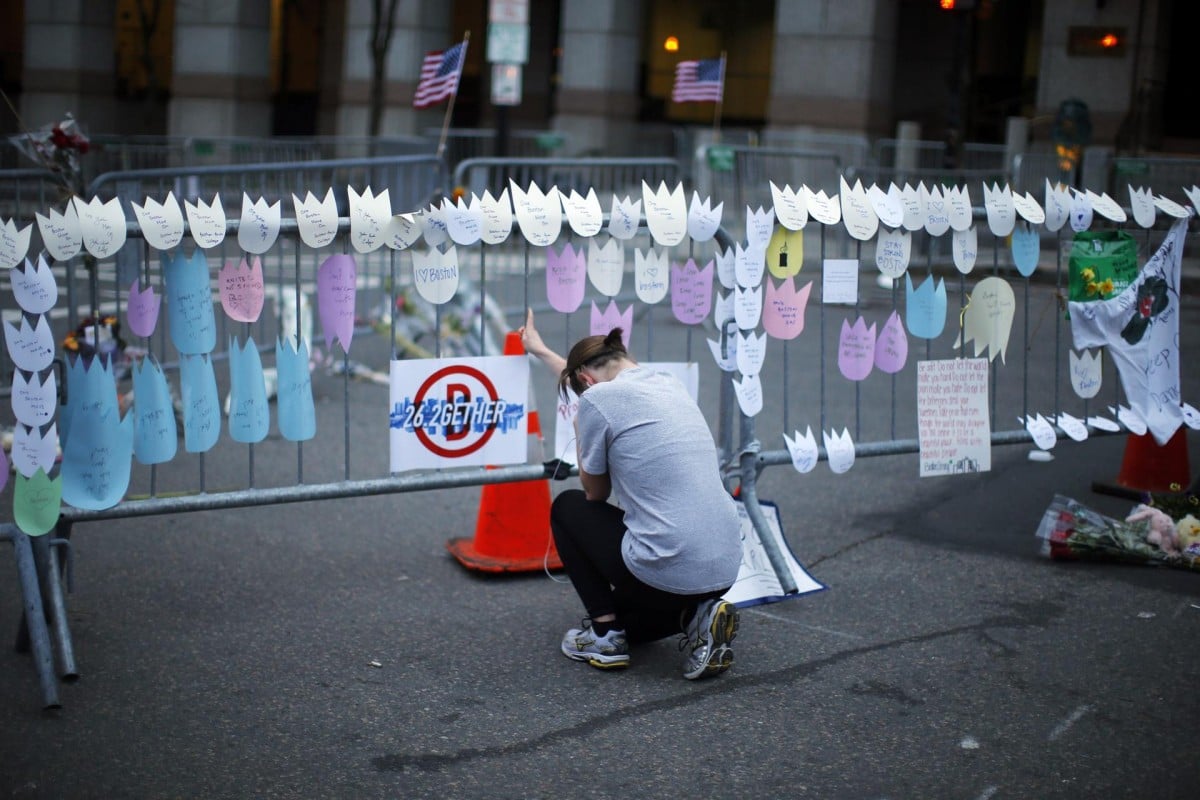
Dzhokhar Tsarnaev, the man accused of the Boston Marathon bombing, could face a biased trial
 A woman pays her respects in front of a memorial to the victims of the Boston bombings.
A woman pays her respects in front of a memorial to the victims of the Boston bombings.The trial for the alleged 2013 Boston Marathon bomber, Dzhokhar Tsarnaev, began last Monday. The process of selecting the 12 members of the jury and six back up members is expected to last three weeks, as more than 1,000 jurors have been called to potentially serve.
Since prosecutors have charged Tsarnaev in federal courts, he could receive the death penalty if convicted.
But in a state where corporal punishment was abolished two decades ago and recent surveys stating that 60 per cent of people are against the death penalty, this is a conflict within itself.
The 2013 attack killed three people and injured more than 260 others, making headlines all over the world.
The problem with such a high-profile case is that there isn’t anyone who hasn’t been affected by the bombings. Most people are linked to someone who was connected to the bombings in one way or another.
Described as “smirking” and seemingly nonchalant, Tsarnaev is potentially facing a group of jurors that will find it hard to separate themselves completely from the case.
Defence lawyers have asked repeatedly that the trial be moved from Boston, claiming it will be impossible to find an impartial jury in the city, but these requests have been refused by the presiding judge. And so the trial is to take place a mere two miles from the finish line bombing location.
Given the recent terror attack on satirical magazine Charlie Hebdo in France, which left 12 people dead, people in Boston will have fresh feelings of anger and upset, and are likely to take a stronger stance against terrorism than they perhaps would have before the attack. Some say this will make jurors less likely to remain objective when faced with Tsarnaev’s case.
Many have suggested that the decisions of the defence – to depict Tsarnaev as manipulated by his older brother (who was run over during the manhunt) and for Tsarnaev to plead not guilty – are cruel decisions. By doing so, the trial will run a much longer course, reopening wounds for a city that has tried hard to move on.
Even if Tsarnaev is convicted of the death penalty, the appeals process could go on for years, dragging out the tragedy for everyone involved.
Let us hope that the trial is fair and that wounds can finally heal.
